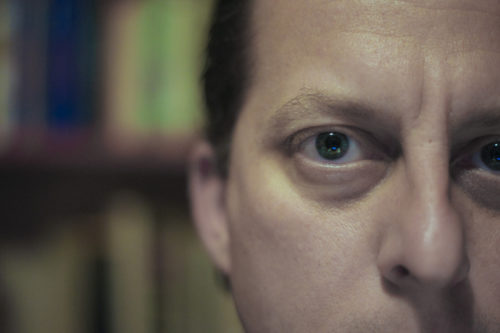Sex Addict Symptoms: What Are They and What Can Be Done To Treat Them
Christian Counselor Spokane
Carl was a successful businessman. He had been married for 20 years, and he and his wife had three active teenagers. Carl worked hard and was rewarded financially. He provided for his family, and they lived comfortably in a middle class neighborhood.
 What no one knew was that for most of his marriage, Carl hid a number of secret behaviors. He was frequently gone working at his job, and when he was home, he was rarely emotionally present. Carl was often irritable and guarded. He stayed up late at night, in his words, “to work on projects that were due at work.” He also traveled for his business, sometimes staying away for two or three nights in other cities. He attended frequent business dinners where his wife wasn’t able to reach him until late in the evening.
What no one knew was that for most of his marriage, Carl hid a number of secret behaviors. He was frequently gone working at his job, and when he was home, he was rarely emotionally present. Carl was often irritable and guarded. He stayed up late at night, in his words, “to work on projects that were due at work.” He also traveled for his business, sometimes staying away for two or three nights in other cities. He attended frequent business dinners where his wife wasn’t able to reach him until late in the evening.
Carl admitted to his wife that sometimes he had “several drinks” and lost track of time when he was at dinner with other colleagues. One day, life changed for Carl, his wife, and their children. Carl’s phone rang while he was taking a shower after returning from a business trip, so his wife answered. The voice on the other end was asking for Carl. It was a female’s voice. Carl’s wife asked the woman some questions, but there was no answer, and the call was dropped.
Carl’s wife felt anxious and started looking through his phone. What she found disgusted her. Her world began to crumble. As she started taking in the words her husband had typed to other women in text after text, she felt sick, angry, and fearful. In the midst of her discovery, her oldest son, a freshman in high school, came into their room. He saw his mom crying while holding his dad’s phone. When he asked what was wrong, all his mom could do was to try and hold back her tears and say, “Nothing is wrong. I am just having a hard time right now.”
 Lying to her son was the last thing she wanted to do, and yet, she couldn’t tell him that she found out his dad had been hiding and lying for a long time. As Carl’s wife started reading texts that he had sent throughout the time he was gone, she discovered that he was texting with over 10 different women, and the texts were sexually graphic in content. When Carl got out of the shower a few minutes later, he found his wife holding his phone, and asked her what was wrong – though he already knew he had been caught.
Lying to her son was the last thing she wanted to do, and yet, she couldn’t tell him that she found out his dad had been hiding and lying for a long time. As Carl’s wife started reading texts that he had sent throughout the time he was gone, she discovered that he was texting with over 10 different women, and the texts were sexually graphic in content. When Carl got out of the shower a few minutes later, he found his wife holding his phone, and asked her what was wrong – though he already knew he had been caught.
For the next several hours, Carl and his wife talked, and Carl began to share how out of control his sexual behaviors had become. He admitted to multiple affairs over a number of years, excessive alcohol on every business trip, and sexualized texting with more women than he could count. There was more than he could get to in that first night of truth-telling, and the pain that his wife felt was unlike any she could have ever imagined.
In this fictionalized, yet very realistic story, are the tragic, heart-wrenching results of years of hiding, lying, omitting, and betraying behaviors and words that are familiar to any partner, male or female, who has discovered the secret life of their husband or wife. While no one symptom is indicative of sex addiction, there are some signs that may be worth checking out.
Sex Addict Symptoms
Sex addict symptoms are numerous. Here are a few examples of consequences associated with sex addiction:
- I lost three marriages because of affairs.
- I have frequent viruses on computers.
- I got herpes and gave it to my wife.
- People lie for me at work to cover for my absences.
- My wife discovered sexualized texting to multiple people.
- I have depression.
- I experience anxiety.
- I use minimizing behaviors using words like, “Only a little,” “Only once and awhile,” “It’s no big deal.”
- I use blaming behaviors, like “If my wife/husband weren’t so cold, I wouldn’t have to have an affair/access pornography.”
- I have sleep disturbances.
- My partner has physical problems (ulcers, high blood pressure).
- My partner has erectile dysfunction.
- I have experienced loss of self-esteem.
- There has been an increase in marital or relationship problems.
- I have had feelings of spiritual emptiness.
- There have been illegal activities (arrests or near arrests).
In Carl’s story, he guarded his phone and rarely left it anywhere out of his sight. He also was emotionally absent, and often critical of his family. He stayed up late, was frequently irritable, and was engaging in other compulsive actions (drinking regularly and excessively).
 The above list is only a partial listing of the myriad of symptoms and signs that point to an increasing isolation of Carl from himself, his family and friends, and God. The good news is that the addictive cycle was exposed and the prison that Carl had been locked in for over 20 years was able to be addressed. Now Carl can begin healing if he engages in regular support and therapy for sexual addiction.
The above list is only a partial listing of the myriad of symptoms and signs that point to an increasing isolation of Carl from himself, his family and friends, and God. The good news is that the addictive cycle was exposed and the prison that Carl had been locked in for over 20 years was able to be addressed. Now Carl can begin healing if he engages in regular support and therapy for sexual addiction.
Steps Toward Recovery from Sex Addiction
As Carl engages in treatment for sexual addiction and in his case multiple addictions, here is what can be done to treat him and the underlying roots of his addiction. As Patrick Carnes writes in his book,
Facing the Shadow: Starting Sexual and Relationship Recovery
1. Carl must recognize self-delusion. Being caught is a step towards this recognition, but it doesn’t stop with getting caught. Sometimes the thinking present at this time is that others are overreacting to “normal” things, or the problems will blow over, or that “I will be okay if I just do less of my behaviors.” Some other thoughts at this point in his story may include, “Therapy does not work,” or “I can do this on my own,” or “My situation is different.” Delusion is the worst part of this illness. It is important for Carl to list what his problems are, what his secrets have been or the ones he continues to hold, and the excuses that he has used over time to rationalize his behaviors.
2. Carl must recognize what an addiction is. As he begins to explore what addiction is, he will begin to see that addiction is an illness – a very serious one, at that. It is important for Carl to understand what his addictions are, and how to get the help that he needs in order to address all of his addictions. Only when he starts to see that the addiction cycle is in the midst of a larger addictive system, will he begin to see some of the components of his addictive process.
3. Carl must begin to understand his use of compulsive sex. As he begins to understand his behaviors, he will see patterns emerge. It is important for him to determine, with the aid of a therapist, if he is addicted.
That can be determined by looking at:
- Does he have a preoccupation with sex on the Internet?
- Does he frequently engage in sex on the internet more often or for longer periods of time than intended?
- Has he had repeated unsuccessful efforts to control, cut back on, or stop engaging in sex on the internet?
- Does he have restlessness or irritability when attempting to limit or stop engaging in sex on the internet?
- Has he used the internet as a way of escaping from problems or relieving feelings such as helplessness, guilt, anxiety, or depression?
- Has he returned to sex on the internet day after day in search of a more intense or higher-risk sexual experience?
- Has he lied to family members, therapists, or others to conceal involvement with sex on the internet?
- Has he committed illegal sexual acts online (for example, sending or downloading child pornography or soliciting illegal sexual acts online)?
- Has he jeopardized or is he losing a significant relationship, job, or educational/career opportunity because of online sexual behaviors?
4. Carl must accept the problem. His acceptance of the problem means that he will begin to own his behaviors, and begin to see the path ahead as one in which he will need support from others. He will focus on what he can do, and that he will have to give up secrets and pretending to be something he is not. When he begins to learn these lessons, he starts to accept that he has a problem.
5. Carl must understand the damage that has been done. As he begins to grasp the enormity of the damage that has been done to himself, to his wife, and to his family, he will begin to take in that he must make a full disclosure, and that honesty is the only way to get needs met. He will exercise humility and have a damage control plan. Seeking the help of others will become integral to his journey forward.
6. Carl must manage life without dysfunctional sexual behavior. As he is supported in his road to healing, he will make a daily effort to find increased stability. He will engage in strategies that will help him reflect on meaning and value. He will also surrender to “letting go” and doing all that he can, and then accepting that is enough.
7. Carl must understand how to manage the physical impact of his addiction. That may include having a physical as Carl learns more about caring for himself, as well as limiting damage to his partner/wife.
8. Carl must create support systems. While therapy is very helpful for someone recovering from sexual addiction, it is not enough. Attending a 12-step group is not enough. Carl will need to participate in the life of a 12-step community.
9. Carl will need to deepen his recovery for profound life change. If other addictions are present, they need to be addressed. He and his wife will need support for the reintegration of intimacy within their relationship and the return of an informed trust. His spiritual life will be deepened in a spiritual community.
When Carl was found out, he started his journey towards relational and spiritual healing within himself. As he engaged in addressing his compulsive use of sex with a Certified Sexual Addictions Therapist (CSAT), he was able to tell his whole story that included disconnections from his family as a child and young adult, and early expectations that when he was married, all of his sexual needs would be met in his marriage.
 He began to address his isolation and shame and started on the road to sexual sobriety. The first few months were very difficult for him, his wife, and his children. Carl went to therapy weekly and within a few months, he started going to a therapy group and eventually added a support group from his church that focused on recovery from sexual addiction. Their marriage continued to be strained as his wife sought to find ways to trust him again, in the midst of Carl experiencing relapses in the first six months of his recovery.
He began to address his isolation and shame and started on the road to sexual sobriety. The first few months were very difficult for him, his wife, and his children. Carl went to therapy weekly and within a few months, he started going to a therapy group and eventually added a support group from his church that focused on recovery from sexual addiction. Their marriage continued to be strained as his wife sought to find ways to trust him again, in the midst of Carl experiencing relapses in the first six months of his recovery.
His wife also found help in the words and presence of a therapist who understood the trauma of relational betrayal. She was supported in her own recovery, and eventually found a group of women at her church in whom she could confide and be supported.
Together they met with her therapist and his therapist to help them stabilize their relationship in the early stages of recovery. After a year of individual and marriage support, they started seeing the beginnings of a new kind of trust in their relationship. They continued to have individual and marriage support through the first two years of their recovery, then transitioned into less therapeutic support as they worked to stay on the journey they started in the discovery of Carl’s multiple affairs.
As I consider the journey of recovery from sexual addiction for an individual or a couple, I am reminded that “He who began a good work in you will perfect it until the day of Christ Jesus” (Philippians 1:6). Recovery from sexual addiction is hard work, painstakingly slow, and long. It is important to know that all recovery is a spiritual journey.
“Blue-Green,” courtesy of Patrick Denker, Flickr CreativeCommons (CC BY 2.0); “Man,” courtesy of George Hodan, Public Domain License, All-Free-Download.com





